Diving Certifications for Pros – If you’re passionate about diving and eager to take your skills to a professional level, diving certifications for pros can unlock a variety of advanced career paths in the diving world. Whether your goal is to become a dive master, instructor, technical diver, or even a specialist instructor, obtaining the right certifications will equip you with the expertise and credibility needed to succeed.
In this comprehensive guide, we will explore the top certifications that professional divers pursue, the skills you’ll develop, and how to choose the best path for your career.
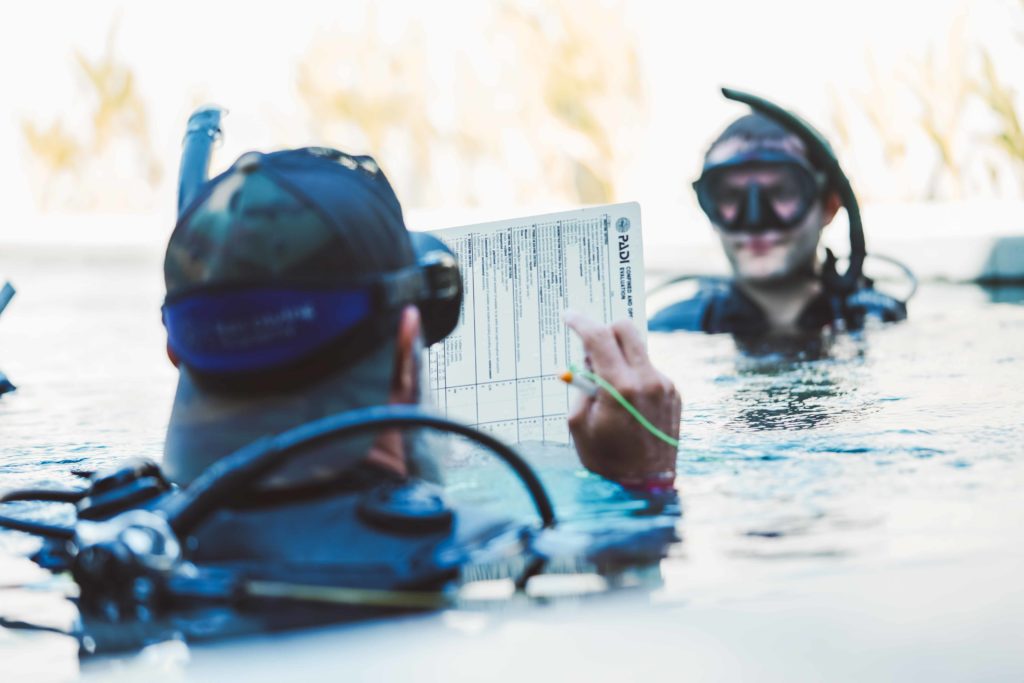
What Are the Essential Certifications for Professional Divers?
Professional diving certifications offer structured learning and hands-on experience to ensure you can safely manage diving operations and guide others. Here are the most important certifications every aspiring pro diver should know:
1. Dive Master Certification
The Dive Master Certification is the first major step toward becoming a professional diver. As a dive master, you’ll have the skills to supervise diving activities, assist instructors, and lead certified divers on dives. This certification not only focuses on improving your diving abilities but also on developing leadership, safety management, and dive planning skills. Many dive masters go on to work at dive centers, guiding groups of recreational divers or assisting in dive courses.
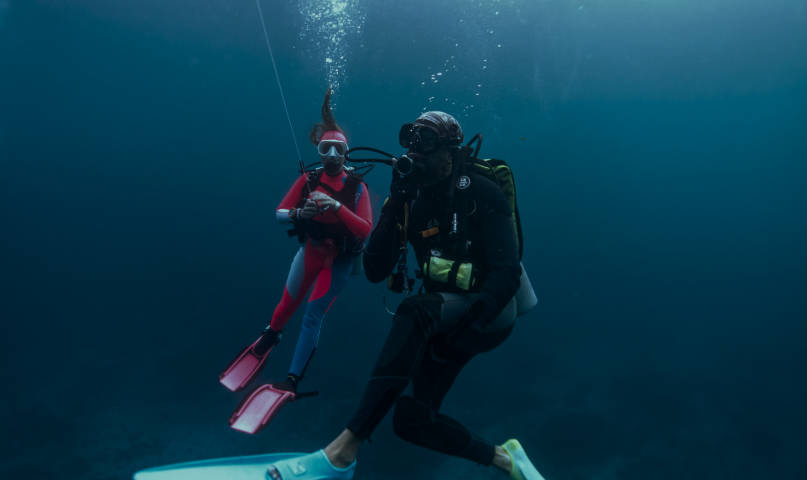
Prerequisites: Advanced Open Water Diver certification, Rescue Diver certification, 40 logged dives (to start the course), and a minimum of 60 logged dives by the end.
What you’ll learn: Leadership, dive planning, risk management, and how to assist instructors with students in training.
2. Instructor Development Course (IDC)
The Instructor Development Course (IDC) is the next step after becoming a dive master. This course prepares you to become a certified diving instructor, allowing you to teach new divers, conduct Open Water courses, and certify students. The IDC includes both theoretical knowledge and hands-on teaching practice, ensuring you can confidently lead others in diving.
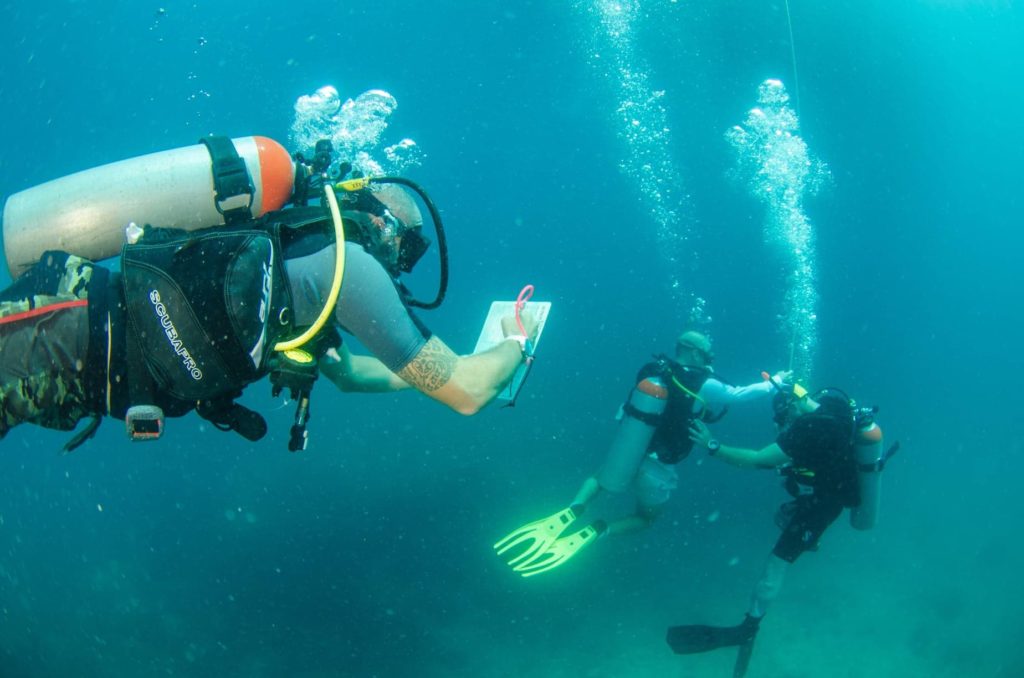
Prerequisites: Dive Master certification, 60 logged dives (to start the course), and a minimum of 100 logged dives to qualify for the Instructor Examination (IE).
What you’ll learn: Teaching methods, dive theory, in-water skills, and how to conduct various PADI or equivalent scuba diving courses.
3. Specialty Instructor Certifications
Once you’ve completed the IDC and become a certified instructor, you can expand your expertise by pursuing Specialty Instructor Certifications. These certifications allow you to teach specialized diving courses, such as Nitrox, Deep Diving, Wreck Diving, Night Diving, and more. By offering a wide range of courses, you’ll become more versatile and marketable as a diving professional.
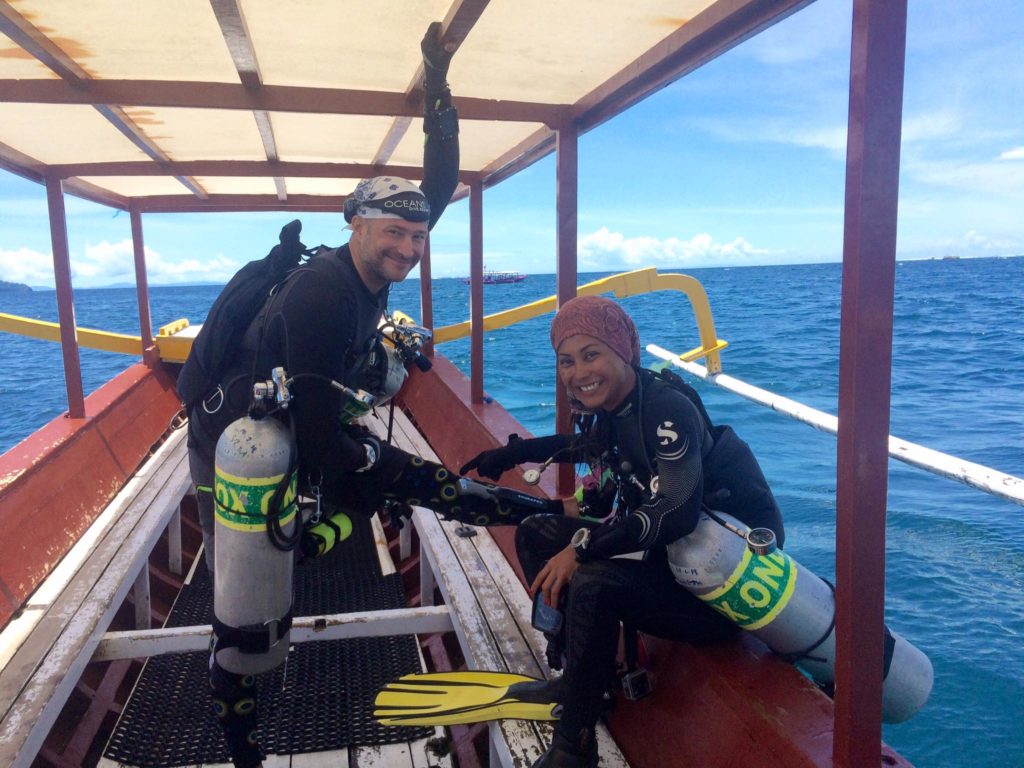
Popular specialties: Enriched Air (Nitrox), Deep Diver, Wreck Diver, Underwater Navigation, and Night Diver.
Benefits: Expands your teaching capabilities and increases your income potential as a multi-specialty diving instructor.
4. IDC Staff Instructor
For experienced instructors looking to mentor and train future instructors, the IDC Staff Instructor certification is the perfect next step. As an IDC Staff Instructor, you’ll assist Course Directors in teaching the Instructor Development Course, providing leadership and guidance to instructor candidates.
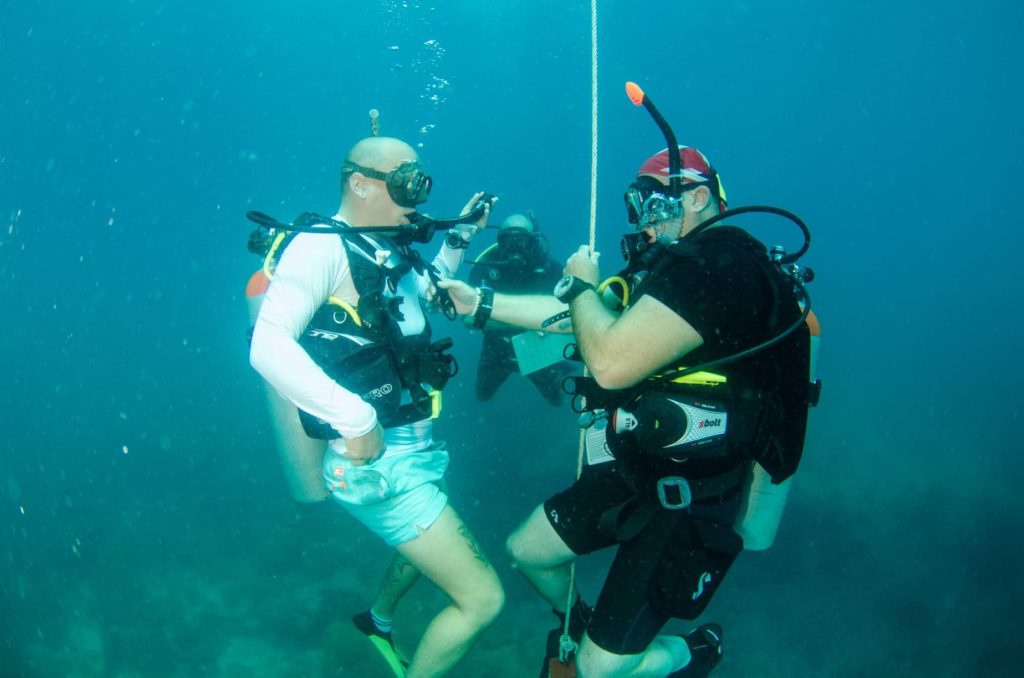
Prerequisites: Open Water Scuba Instructor certification, and extensive teaching experience.
What you’ll learn: Teaching advanced-level diving courses, mentoring instructor candidates, and conducting instructor-level assessments.
5. Emergency First Response (EFR) Instructor
Safety is paramount in diving, and the Emergency First Response (EFR) Instructor certification is crucial for teaching others how to respond to medical emergencies. This certification qualifies you to teach CPR, AED, and first-aid courses, which are often prerequisites for other diving certifications, such as Rescue Diver and Instructor courses.
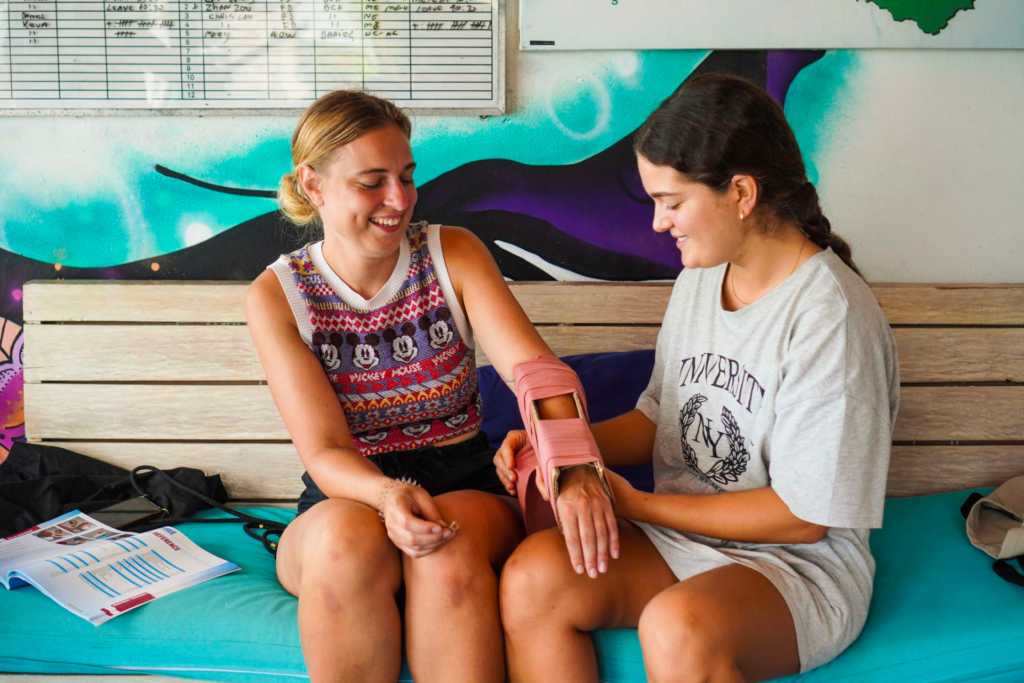
Prerequisites: Current CPR and first aid training (not necessarily diving-related).
What you’ll learn: How to conduct CPR, first-aid, and AED courses for divers and non-divers.
How to Choose the Right Diving Certification for Your Career Path
When deciding which diving certification to pursue, several factors come into play, including your long-term career goals, the environment you’ll be diving in, and the institution where you’ll get certified. One such institution that stands out is Bali Pro Dive, a premier dive center in Bali that has received full certification from PADI, the world’s leading scuba diving training organization.
1. Career Goals
The type of certification you pursue should align with your career objectives. If your aim is to guide recreational divers and assist with dive courses, the Dive Master certification is the first logical step. If you are passionate about teaching others and want to conduct full scuba diving courses, then pursuing the Instructor Development Course (IDC) is essential.
Specializing in specific types of diving through Specialty Instructor certifications can also broaden your career opportunities. Teaching specialized skills like deep diving, wreck diving, or Nitrox diving can enhance your credentials and make you more marketable in competitive dive locations.
2. Location and Diving Environment
The location where you plan to work plays a significant role in determining the certification path. Some regions, like Bali, offer diverse and challenging dive environments, which can provide invaluable experience as you earn your certifications. One highly reputable institution in Bali is Bali Pro Dive, which is fully accredited by PADI. As a certified PADI center, Bali Pro Dive is recognized for its world-class diving courses, led by professional instructors who are committed to providing high-quality training.
Bali’s diverse underwater environments, including coral reefs, wrecks, and deep walls, allow divers to experience a wide range of conditions, making it an excellent location to hone your skills. Bali Pro Dive is known for its professionalism and personalized training approach, ensuring that divers at all levels receive the attention they need to succeed.
Additionally, Bali has become a popular destination not only for local divers but also for international divers from regions like Hong Kong, Australia, Singapore, and other countries. Many tourists travel to Bali specifically to gain their professional diving certifications while enjoying the island’s world-famous diving spots.
The convenient proximity to these regions and the high standard of diving education offered by Bali Pro Dive make it an attractive destination for those looking to combine an exotic travel experience with professional development in diving.
3. Time Commitment and Experience
Different certifications require varying levels of experience and time commitments. For instance, the Instructor Development Course (IDC) may take several months to complete, including preparation for the Instructor Examination. On the other hand, becoming an EFR Instructor or Specialty Instructor can often be completed in shorter time frames, depending on your experience level.
If you’re aiming for a more advanced or instructor-level certification, ensure that you have the necessary logged dives and practical experience required to begin the course. Centers like Bali Pro Dive offer flexible training schedules, allowing you to complete your courses at your own pace while gaining real-world diving experience.
4. Market Demand
Certain diving certifications are in higher demand depending on the region. For instance, areas with high tourism and diving activity, like Bali, often have more opportunities for Dive Masters and Instructors. Earning your certifications at a reputable center like Bali Pro Dive not only provides you with the technical skills you need but also connects you with a network of dive professionals and potential employers in the region.
By earning additional certifications like EFR Instructor or Specialty Instructor, you can increase your marketability, making you more attractive to dive centers that value diverse skill sets. The more certifications you hold, the more opportunities you’ll have to lead advanced diving courses and increase your earning potential.
FAQs About Diving Certifications for Pros
What certifications do professional divers need?
Professional divers typically pursue certifications such as Dive Master, Instructor Development Course (IDC), Specialty Instructor, and Technical Diving Certifications to advance in their careers.
How do I become a professional diver?
To become a professional diver, start with a basic Open Water Diver certification and advance through certifications like Rescue Diver, Dive Master, and Instructor, depending on your career goals.
What is the highest level of scuba certification?
The highest level of certification typically includes Instructor Development Course (IDC) or Technical Diving, which allow you to train others and explore advanced dive environments.
How long does it take to become a certified diving instructor?
Becoming a certified diving instructor can take several months, including time spent completing the Instructor Development Course (IDC) and passing the Instructor Examination.
Choosing the right diving certification can significantly influence your professional diving career. Whether you want to become a Dive Master, an Instructor, or gain expertise in Emergency First Response, pursuing your certifications at a reputable center like Bali Pro Dive ensures you receive world-class training. With PADI accreditation and a commitment to high standards, Bali Pro Dive is an excellent choice for divers who are serious about taking their skills to the next level.
Bali’s strategic location, combined with its status as a diving destination for tourists from regions like Hong Kong, Australia, Singapore, and beyond, makes it a perfect spot to earn professional diving certifications while enjoying an unforgettable travel experience. Whether you’re looking to advance your diving career or simply want to dive in one of the most beautiful places in the world, Bali offers the ideal environment for both.

No responses yet